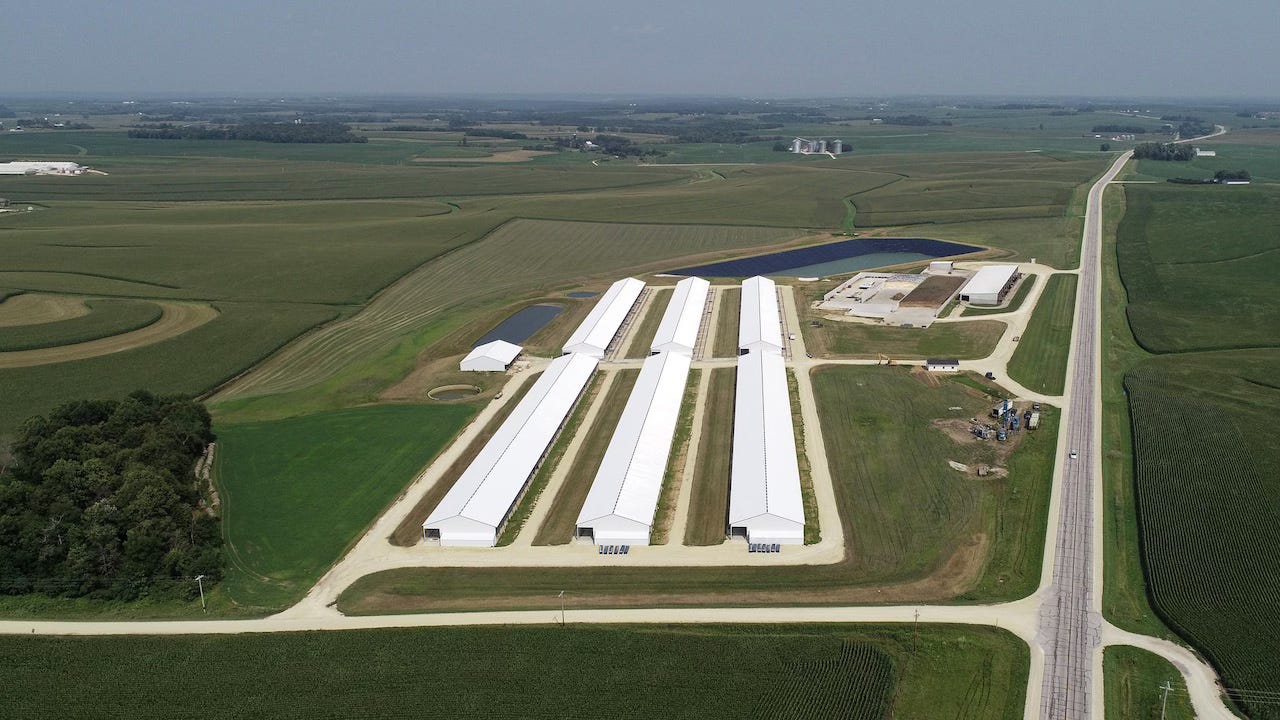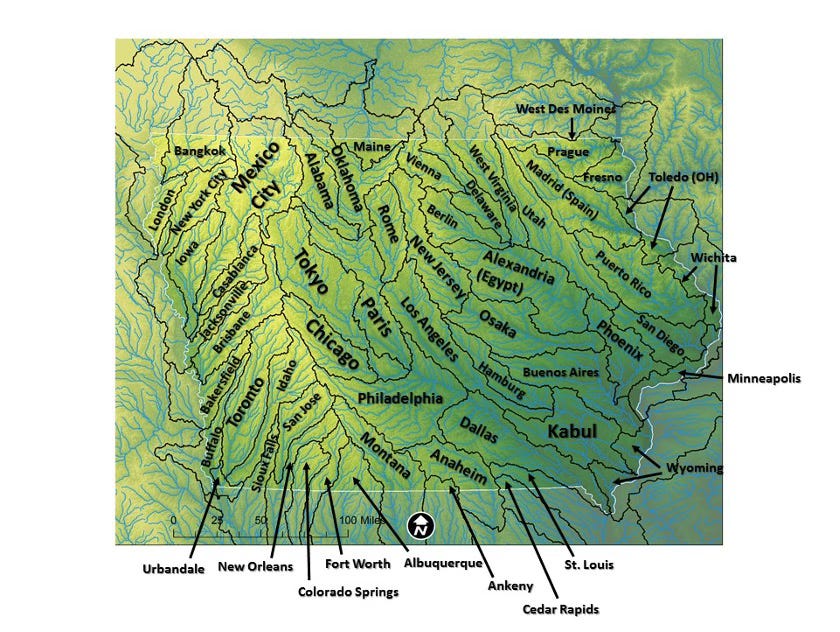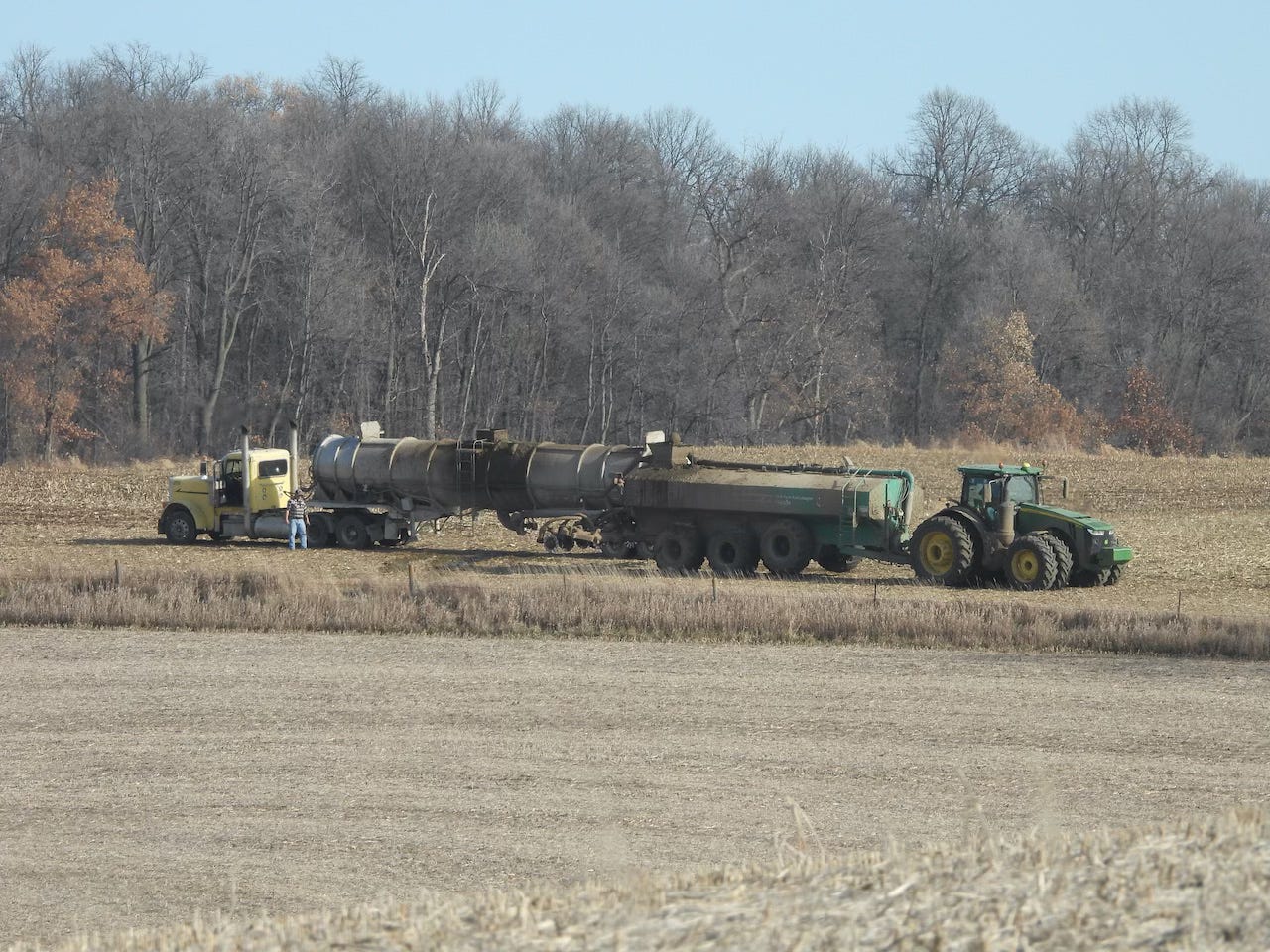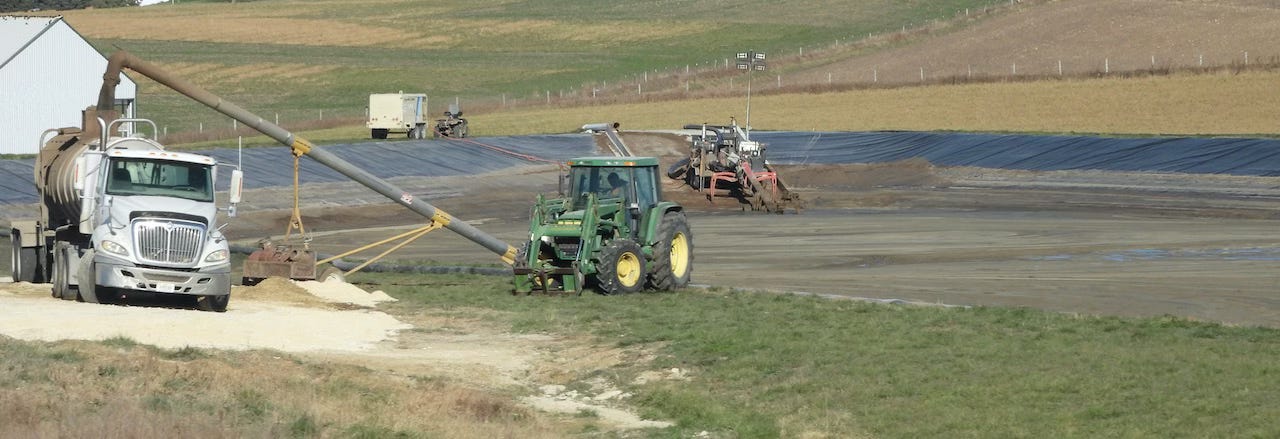
Background and Disclaimer:
I’ve been working for seven years to protect Clayton County’s environment from an industrial mega-feedlot near Monona. This animal feeding operation is especially problematic because its 39-million-gallon manure storage basin and six buildings, housing up to 11,600 cattle, sit at the headwaters of Bloody Run Creek, a trout stream that the Iowa Department of Natural Resources (DNR) has classified an Outstanding Iowa Water.
As a member of the ad hoc Committee to Save Bloody Run, and one of seven plaintiffs in a lawsuit challenging the feedlot’s water withdrawal permit, I remain adamant that Iowa’s Driftless Area, which is dotted with sinkholes, springs, and cold-water streams, is no place for that many cattle, producing that much manure.
What follows is a report on just one of the many obstacles we have faced.
Iowa DNR staffers have defended their decision to renew a water withdrawal permit for up to 11,600 cattle at Supreme Beef LLC, near Monona. A group of neighbors and environmentalists challenged the renewal, contending that the permit, first issued to Walz Energy in 2017, was not in the public interest. The group argued that the permit ignored the existence of nearby wells, misstated the number of cattle, under-estimated the amount of water the animals might consume, and disregarded potential human health and pollution risks.
The permit authorized the withdrawal of 21.9 million gallons per year at a maximum rate of 100 gallons per minute from two wells approximately 620 feet deep, drilled into the Jordan Sandstone aquifer.
But at a DNR contested case hearing in Des Moines February 1-2, Michael Anderson, senior environmental engineer for the DNR’s water allocation and use program, said the agency has no legal authority to consider factors beyond whether the water is available to be used without short-changing other water users. Anderson conceded that is a narrow view, but standard procedure. “I’ve been told by many members of management over my 40-year career that we’re limited to considering only allocation,” he said.
Tammy Thompson, whose family owns a farm just across the road from Supreme Beef, complained in a written declaration that the original permit issued to Walz Energy did not identify her well – even though the application expressly asked the location of the nearest well. Thompson said the family faced the heavy financial burden of having to drill a new well to be assured of sufficient quantity and quality of water for their herd of dairy goats.
James Larew, attorney for the challengers, pressed Anderson and other DNR staffers to admit that Iowa law requires them to take the “public interest” into account when issuing such permits. Larew argued that language in the Iowa Code mandates that the agency protect public health and safety when considering water permits - and not just whether the allocation of the water constitutes a “beneficial use” for the user.
Larew also noted that standard permit language requires the permittee to follow all other laws, and that Walz Energy and Supreme Beef had been cited several times for various environmental violations. He also pointed out that Supreme Beef in 2023 was required to submit a new Nutrient Management Plan (NMP) for the cattle’s manure, after a judge agreed with a Sierra Club and Trout Unlimited lawsuit alleging that the DNR had approved a faulty NMP.
DNR attorney Bradley Adams, objected, reiterating the agency position that “any (testimony) on manure or water quality is not relevant to the case.
Anderson, who is a former competitive swimmer, said he followed the principle of “staying in your own lane.” It would be “beyond the scope of our program,” to consider possible environmental impacts that might be caused by the use of water allowed by the permit, he said.
Dr. Chris Jones, a water research engineer who retired from the University of Iowa after Iowa legislators objected to his blogs critical of industrial agriculture, said one million people in Iowa drink water that contains more than 5 parts per million of nitrates - a level that’s been documented to cause significant health impacts. The high nitrates are largely due to land application of Iowa livestock manure equivalent to the human waste from 168 million people, Jones said.
Adams objected to the testimony, again insisting that water quality was not relevant to the case

Steve Veysey, of Ames, a retired Iowa State University chemist and one of the plaintiffs in the lawsuit, cited science showing that cattle typically would drink more water than the feedlot operators estimated in the permit application. Veysey testified at length about the increased risk of aquifer and well contamination due to the proximity of the site and the manure application fields to sinkholes and other karst features. This included several maps and charts related to current well contamination, the size of Supreme Beef compared to all other animal feeding operations in the area, and floodway obstruction by the cattle containment buildings and the manure basin.
Veysey and Larew noted that Supreme Beef’s request to renew the water permit, which expired after five years, included no changes from the 2017 permit application - despite the facts that Supreme Beef had abandoned their original plan to capture methane from the manure to sell as fuel, and the number of cattle proposed for the site jumped from 10,000 to 11,600 head.
Feedlot manager and part owner Jared Walz said Supreme does not have 11,600 cattle on site, in part because the animals perform better when they’re not as crowded - inadvertently providing an insight on Iowa’s animal production systems. The current average may be about 9,000 head, when combined with a preexisting containment on the site.
When Larew asked what might have motivated the plaintiffs’ challenge to the water permit, Walz voiced frustration that “the devil” had interfered with his family’s plans for a legitimate agricultural business.
DNR staff member Chad Fields conceded that the onus is on the permit holder to comply with other state and federal laws, and there are no repercussions in the permit renewal process if the applicant has not complied with unrelated regulations.
When Supreme Beef applied to renew their permit, the DNR held a public hearing to receive comments after a notice was published in a local newspaper saying the DNR had recommended the renewal. Larew suggested the decision had already been made, and that the DNR should have asked for public input before supporting the renewal.
Anderson said the hearing was to gather information, and science-based changes could be made – but acknowledged that “it’s a difficult process to make the department change its mind.”
Anderson was careful to say that the DNR tries to follow and implement laws passed by the Legislature.
“But I tend to agree with Dr. Chris Jones,” he added. “I have the opinion that the political process is not working particularly well,” he said. “Water quality is a tough egg.”
For more on why "water quality is a tough egg," I recommend Chris Jones' blog.
Adams, representing the DNR, said “the department takes no position on what is right or wrong. We’re simply trying to carry out the law.” Adams concluded by asking the judge to dismiss the challenge on the grounds that Iowa Code defines water for livestock as a “beneficial use,” and that anything beyond water quantity allocation is regulated by other state laws or agency rules.
Larew described the DNR’s position as “irrational” and “misguided,” and urged Judge Toby Gordon to “do what the department won’t do,” that is to reject the permit renewal, require the DNR to allow the public to comment on the proposed renewal, and ensure that the permit is consistent with Iowa law and the public interest.
“A strong judicial ruling would make this a better agency,” Larew declared.
Judge Gordon gave the parties until March 4 to submit final written arguments.
As an Iowa farm kid, former Des Moines Register outdoor writer/photographer and freelance writer/photographer focused on the environment, I’m privileged to be a member of The Iowa Writers’ Collaborative. Many of our diverse posts are free - but we appreciate paid subscribers! We are also proud to be affiliated with Iowa Capital Dispatch, where some of our content can be found.
We now have 48 writers as members and a Letters from Iowans column managed by Jeffrey Morrison.






Larry again captured the utter resistance of Supreme Beef to assume any responsibility, short or long term for its impact on humans and the environment. Iowans owe multiple debts of gratitude to Larry, Steve Veysey, Jim Larew, Chris Jones and others.
Thanks Larry, for continuing the fight, for clean water and for the trout in beautiful Bloody Run. Why anyone would risk the possibility of contaminating that water and the drinking water of those homeowners nearby absolutely boggles the mind. I am disheartened by the DNR's position that it is absolved of responsibility and the legislature's continued disregard of this important issue. Keep up the righteous fight, Larry.